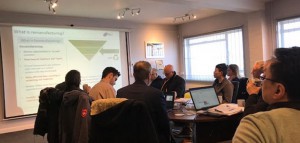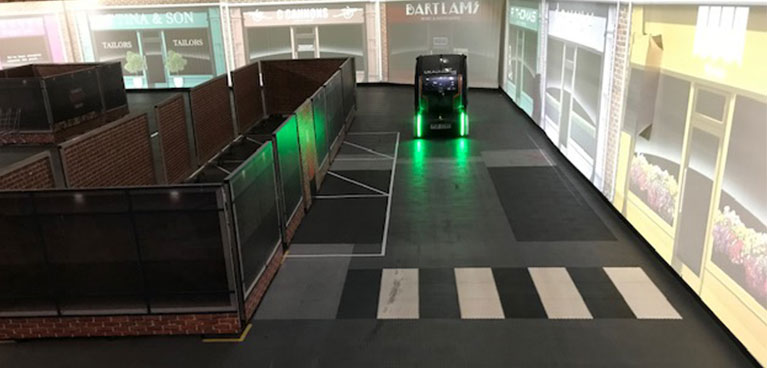Dr Helen Roby and Professor Sally Dibb
As climate change hits the news in response to the Extinction Rebellion protests in April 2019, awareness is being raised of the different ways to preserve the Earth’s resources. The ‘Circular Economy’ and remanufacturing can play a key role in protecting these resources and sustaining raw materials.
The ‘Circular Economy’ is a profitable business model that keeps materials and products in circulation rather than throwing them away and replacing them with newly mined resources. The ‘Circular Economy’ model works alongside the old waste hierarchy, model of prevent, reduce, recycle and dispose, but prioritises business models that can mix and match re-use and recycling in the most beneficial way.
Remanufacturing is one Circular Economy approach now explicitly recognised as having extremely high economic value. Through remanufacturing it is possible to maintain a large amount of the material, energy and labour invested in complex products and keeps them at ‘as-new’ quality while using a fraction of the resources needed for a new product. Remanufacturing is highly beneficial to the environment because it reduces energy consumption, cuts carbon emissions and keeps materials in use rather than sending them to landfill. Remanufacturing can also benefit customers by producing goods at prices that typically are 60-80% lower than new products. There are also quicker lead times and the availability of products that are no longer made can be maintained. Remanufacturing tends to take place close to its market, therefore supporting the local economy by creating local jobs. Manufacturers can benefit from becoming a remanufacturer in a number of ways. Remanufactured goods tend to deliver higher margins than new products, making businesses more profitable. Their workforce develops valuable problem-solving skills as they learn how to disassemble and reassemble products. This makes their work more interesting resulting in higher rates of staff retention than for those working on production lines. Through trade-in schemes, remanufacturers can build better relationship with their customers than those which rely on throw-away, one-off purchases.
Coventry University, CBiS and TPSR researchers Dr Helen Roby and Sinead Ouillon, ran a workshop in January this year at RDM Automotive for SMEs to learn more about these issues and remanufacturing more widely. The workshop was funded as part of the EIT Raw Materials KIC project, Reman Pathways, on which Dr Helen Roby, Sinead Ouillon and Professor Sally Dibb, are collaborating with partners from Finland; Delft in The Netherlands; Grenoble, France and Berlin, Germany. The project seeks to pilot and test learning materials to help SMEs grow skills in remanufacturing and to develop new business models for remanufactured products.
 The workshop attracted a range of SMEs from the automotive sector, including Microcab Industries and the SMMT. During the morning, Rachel Waugh from Oakdene Hollins provided the SMEs with a thought-provoking overview of remanufacturing and explored potential business models. Two fascinating case study presentations were provided by Andrew Brammer from PSS and Ian Briggs from MCT Reman UK. These presentations spurred plenty of discussion among participants on the issues surrounding remanufacturing and the challenges raised by how products are designed. One of the big concerns was around designing for disassembly, given that remanufacturers do not have a voice in the design process; for example, the problems of re-engineering software often mean that remanufacturing is impossible. There was a lively discussion about how remanufactured goods are perceived by the market. While in some cases remanufactured goods are the expected norm, for example in buses, aeroplanes and lorries, they are less well accepted in other industries. This reticence can mean that even when remanufacturing is occurring, it is not always visible. This lack of visibility and poor brand awareness can make attracting people to the industry a challenge, impacting the numbers of skilled workers in the area. However, remanufacturing could be set to become more mainstream as UK Government procurement stipulations move towards requiring CO2 reductions and remanufactured products.
The workshop attracted a range of SMEs from the automotive sector, including Microcab Industries and the SMMT. During the morning, Rachel Waugh from Oakdene Hollins provided the SMEs with a thought-provoking overview of remanufacturing and explored potential business models. Two fascinating case study presentations were provided by Andrew Brammer from PSS and Ian Briggs from MCT Reman UK. These presentations spurred plenty of discussion among participants on the issues surrounding remanufacturing and the challenges raised by how products are designed. One of the big concerns was around designing for disassembly, given that remanufacturers do not have a voice in the design process; for example, the problems of re-engineering software often mean that remanufacturing is impossible. There was a lively discussion about how remanufactured goods are perceived by the market. While in some cases remanufactured goods are the expected norm, for example in buses, aeroplanes and lorries, they are less well accepted in other industries. This reticence can mean that even when remanufacturing is occurring, it is not always visible. This lack of visibility and poor brand awareness can make attracting people to the industry a challenge, impacting the numbers of skilled workers in the area. However, remanufacturing could be set to become more mainstream as UK Government procurement stipulations move towards requiring CO2 reductions and remanufactured products.
The workshop was a useful pilot in exploring the best ways to present learning materials on remanufacturing. There were three key insights:
- The location helps to attract people to the event – running the workshop at RDM Automotive, the manufacturer of autonomous driving pods, and giving participants the opportunity to ride in the pods was a draw to those in the automotive sector.
- Presenting real-life case studies was felt to be useful by all participants – these helped attendees to understand the processes and business models for remanufacturing.
- The opportunity to network and share experiences – all those that attended appreciated the time they had to share their experiences with and learn from others.
The process of remanufacturing has been around for at least 40 years, but still struggles to become mainstream. However, with heightened awareness about climate change and resource scarcity, work to develop training courses such as that in the Reman Pathways project could be key in supporting a step change in levels of remanufacturing.




Comments are disabled